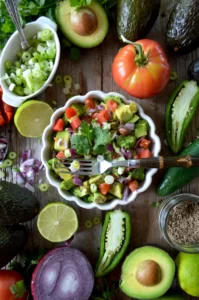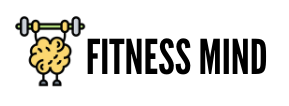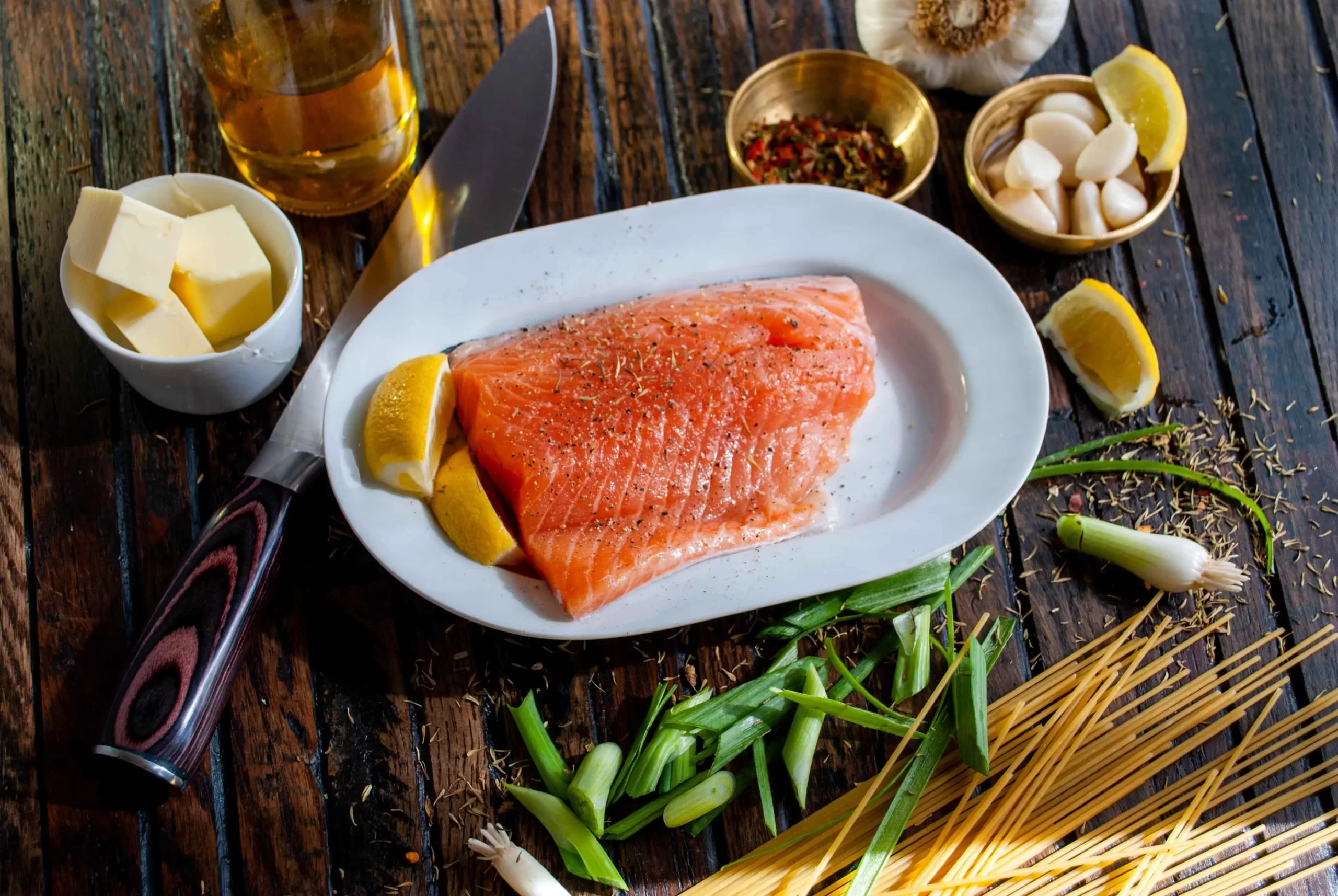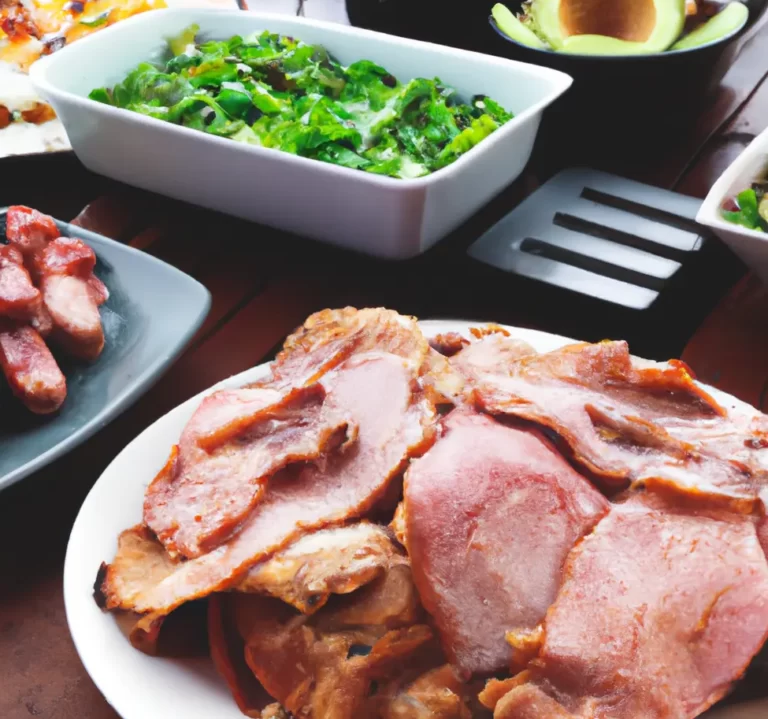Keto Diet: Starting Keto Diet for Beginners14 min read
Are you interested in starting a keto diet?
The Keto diet has been making waves recently due to its ability to promote weight loss and improve overall health. However, the thought of starting such a radical diet can be daunting, especially for newbies.
This guide will take you through the ins and outs of starting your Ketogenic journey with poise and self-assurance. You may have caught wind of the keto diet from famous people like Kourtney Kardashian or Rachael Ray, but what exactly is it?
In a nutshell, the ketogenic diet is a high-fat, low-carb way of eating that has shown to help people lose weight fast and still feel satisfied.
Keto can accelerate fat burn, decrease hunger, and lower blood sugar levels. Unlike other diets that restrict carbs to 20 grams per day or less, with keto, you won’t be fixated on counting calories or tracking macros. Instead, the key is to keep your daily carb intake under 50 grams.
What is keto?
Do you know about the keto diet? The diet that has been getting a lot of attention recently. In short, when you consume fewer carbohydrates and sweets, your body begins to use fat as an energy source instead. Moreover, it has the ability to put you into a state known as ketosis.
Ketosis, I know, it sounds super scientific and complicated, but it’s actually just when your liver breaks down fat and transforms it into these tiny energy molecules called ketones. And then, get this, your brain and other organs can use those ketones for energy too. How crazy is that?
And the benefits don’t stop there! When you’re in a state of ketosis, your body will use more fat for energy. But hold up, before you go chowing down on a bunch of dirty burgers and deep-fried chicken wings, you should know that there are better options out there. Fattier cuts of meat like steak or salmon with some tasty veggies on the side are the way to go.
Now, if you’re interested in trying out the keto diet, just know that you’ll have to drastically reduce your carb intake and up your fat intake. That means foods like meat, poultry, fish, eggs, cheese, high-fat dairy products, healthy oils like olive oil, avocados, nuts, and seeds are all on the menu. But, on the flip side, you’ll have to limit your carb intake too. That means less bread, pasta, rice, fruit, and sugary snacks.
Don’t worry though, we’ll go into more detail about what foods you can eat in this article. So, are you ready to give the keto diet a shot? Let’s do this!
A 59-year-old grandma fought deadly cancer and premature-menopause with her ketogenic diet hacks. Learn more about her methods here.
Why Choose the keto diet?
Well, let’s face it, who doesn’t want to turn their body into a fat-burning machine? And with the keto diet, that’s exactly what you’ll be doing! By eliminating processed and sugary foods, you’ll be giving your body a much-needed break from all the junk food.
By drastically reducing your carb intake and loading up on healthy fats, you’ll be switching your body’s energy source from glucose to fat. It’s like trading in a clunky old car for a sleek, high-performance sports car.
So, why choose the ketogenic diet? Well, if you’re looking for a way to improve your health, boost your energy levels, and enjoy some delicious, high-fat foods, then the ketogenic diet is the way to go.
Here are few of the most common reasons to choose keto diet:
- Weight loss: One of the most popular reasons for starting the ketogenic diet is to lose weight. By reducing carbohydrates and increasing fats, the body enters a state of ketosis in which it burns fat for energy instead of glucose from carbohydrates. This can lead to loosing weight.
- Improved blood sugar control: For people with type 2 diabetes, the ketogenic diet can help improve blood sugar control by reducing the need for insulin and stabilizing blood sugar levels.
- Epilepsy treatment: The ketogenic diet was originally developed as a treatment for epilepsy and is still used for this purpose today. The diet has been shown to reduce seizures in some people with epilepsy.
- Better brain function: Some people report improved cognitive function, including better memory and focus, while following the keto diet.
- Improved heart health: The ketogenic diet may improve heart health by reducing risk factors for heart disease, such as high blood pressure and high cholesterol.
- Cancer treatment: There is some evidence to suggest that the keto diet may be helpful for people with certain types of cancer, as it may help to reduce the growth of cancer cells.
Everyone will not experience benefits from the ketogenic diet, and the diet may not be appropriate for everyone. It is always best to consult a healthcare professional before starting any new diet
What are the side effects of keto?
Like any major change to your diet, the ketogenic diet can cause some side effects, and show negative symptoms as your body adapts. Here are some of the most common side effects of the keto diet:
- The “keto flu”: During the initial adaptation period, some people may experience symptoms similar to the flu, such as fatigue, headaches, muscle aches, and nausea. These symptoms usually resolve within a few days to a week.
- Constipation: A low-carb diet can lead to a reduction in fiber intake, which can cause constipation. Increasing water and fiber intake can help alleviate this issue.
- Bad breath: The buildup of ketones in the body can cause a fruity odor on the breath, which is sometimes referred to as “keto breath.”
- Decreased physical performance: During the initial adjustment period, some people may experience a decrease in physical performance, such as a reduction in strength or endurance. It’s temporary and improves as the body adapts to the diet.
- Increased cholesterol levels: For some people, a high-fat diet can cause an increase in cholesterol levels, particularly LDL cholesterol. Regular monitoring of cholesterol levels is recommended.
- Nutrient deficiencies: The ketogenic diet can be low in certain nutrients, such as fiber, vitamins, and minerals, if not carefully planned. Diet should be balanced and provide all the necessary nutrients.
Having these side effects doesn’t mean it’s not worth it! After all, who doesn’t love a little bit of discomfort for the sake of a trimmer waistline and improved health? Just imagine, you could finally say goodbye to those extra pounds and hello to a new, improved you. And, let’s be real, a little bit of temporary “keto breath” is a small price to pay for the satisfaction of seeing those numbers on the scale go down.
What food should you eat for keto diet?
The ketogenic diet is a high fat diet and it is centered on whole, nutritious foods like meat, fish, eggs, and non-starchy veggies with natural fats such as butter or olive oil. Here are keto food list that you can eat:

- avocados: avocados or fresh guacamole
- butter and cream: grass-fed butter and heavy cream
- cheese: unprocessed cheeses such as cheddar, goat, cream, blue, or mozzarella
- condiments: salt and pepper, herbs and spices
- eggs: omega-3 or pastured eggs
- fatty fish: mackerel, salmon, trout, tuna
- healthy oils: avocado oil, extra virgin olive oil
- low carb veggies: green veggies, onions, peppers, tomatoes, etc.
- meat: bacon, chicken, ham, red meat, sausage, steak, turkey
- nuts and seeds: almonds, chia seeds, flaxseeds, pumpkin seeds, walnuts, etc.
Make things simpler for your ketogenic diet journey. Get this planner to have a more effective keto diet so you don’t waste your time and start seeing real changes!
What food to avoid?
The ketogenic diet is a low-carb, high-fat diet, and the types of foods that you should avoid on the keto diet are those that are high in carbohydrates. Here are the foods that you want to exclude on your keto diet:
- alcohol (occasionally): beer, wine, liquor, mixed drinks (low sugar)
- beans or legumes: chickpeas, peas, kidney beans, lentils, peas, etc.
- fruit: all fruits, except small portions of berries like strawberries
- grains or starches: cereal, pasta, rice, wheat-based products, etc.
- low fat or diet products: condiments, low-fat mayonnaise, salad dressings
- root vegetables and tubers: carrots, parsnips, potatoes, sweet potatoes, etc.
- some condiments or sauces: barbecue sauce, honey mustard, ketchup, teriyaki sauce, etc.
- sugar-free diet foods: desserts, puddings, sugar-free candies, syrups, sweeteners, etc.
- sugary foods: cake, candy, fruit juice, ice cream, soda, smoothies, etc.
- unhealthy fats: processed vegetable oils, mayonnaise, etc.
You might wonder, why should you avoid fruit? Most fruits such as mangoes, grapes, bananas have too much sugar for a keto diet. Eat small portions of berries instead.
What to drink?
When following the ketogenic diet, it’s important to choose beverages that align with the low-carb, high-fat approach of the diet. Here are some options for what to drink while on the keto diet:
- Water: Drink lots of water when you’re on keto diet. This is the best choice for hydration and is calorie-free.
- Tea and coffee: Both tea and coffee are allowed on the keto diet in moderation, as long as they are unsweetened.
- Bone broth: This is a great option for those on the keto diet, as it is high in electrolytes and other important nutrients.
- Coconut milk: Coconut milk is a good option for those on the keto diet, as it is high in healthy fats and low in carbohydrates.
- Dairy-based beverages: Milk, cream, and yogurt can be consumed in moderation while on the keto diet, but it’s important to choose options that are low in carbohydrates and high in fat.
It’s important to avoid drinks that are high in carbohydrates, such as juice, sports drinks, soda, and sweetened tea or coffee. Additionally, it’s best to limit or avoid alcohol, as many alcoholic beverages are high in carbohydrates.
Precautions before starting a Keto diet:
Before starting a keto diet, it is important to be mindful of the following precautions:
- Consult with a healthcare provider: The ketogenic diet can have potential health implications, so it is always best to consult with a healthcare provider before starting this or any other diet.
- Consider your health history: If you have a history of liver or kidney disease, or other health conditions, the ketogenic diet may not be suitable for you.
- Gradually transition into ketosis: Going from a high-carb diet to a low-carb can be a big change, so it’s important to gradually transition into ketosis to avoid any unpleasant side effects.
- Hydrate adequately: The ketogenic diet can lead to dehydration, so it is important to drink plenty of water and other low-carb fluids.
- Monitor electrolyte levels: The ketogenic diet can affect electrolyte balance, so it is important to monitor levels of sodium, potassium, and magnesium, and to make adjustments as needed.
- Consider taking supplements: Some people following a keto diet may need to take supplements to ensure they are getting adequate amounts of vitamins and minerals.
- Consider any medications: If you are taking any medications, it is important to talk to your healthcare provider before starting the keto diet, as some medications may need to be adjusted.
- Make sure you are getting enough fiber: A low carbohydrate diet can lead to low fiber intake, so it is important to find alternative sources of fiber, such as vegetables and nuts.
- Monitor your progress: Regular monitoring of your weight, blood glucose levels, and other health markers can help you gauge the effectiveness of the diet and make any necessary adjustments.
How to start keto diet for beginners?
After knowing the pros and cons of ketogenic diet, and what foods to eat and avoid, you begin asking yourself, where do I start?
The best way to start is by gradually shifting towards low carb diet. Cut out sugary foods and grains first, then move on to low-carb veggies. Add healthy fats and protein-rich foods slowly until you reach your daily calorie and nutrient goals.
It’s also important that you make sure you’re getting enough electrolytes such as magnesium, potassium, and sodium.
After knowing the basics of ketogenic diet, ensure that you plan accordingly. It is important to strategize and plan your meal, so you know what and when to buy to avoid feeling overwhelmed.
If you want to take the food-planning stress out, you can always use a keto meal planner. This custom keto meal planner HERE is recommended to make your ketogenic diet more enjoyable.
How long should you stay on keto diet?
Up till now, there is still no concrete evidence if ketogenic diet is safe and healthy to do for a long-term diet lifestyle. However, studying from people who have done this diet, it is safe for an extended period of time, if you meet certain conditions:
- You are generally healthy, physically and mentally while on keto diet
- You don’t have any conditions that keto diet could make worse.
- You aren’t pregnant or breastfeeding.
- You get enough electrolytes and minerals such as magnesium and potassium.
- You’re not in a calorie deficit for an extended length of time.
If these conditions are met, you can keep doing what you’re doing, unless your doctor recommends not to.
It is OK if you think you can’t stay on ketogenic diet. You can still use this high fat diet for the short-term for your initial weight loss journey and improve your health conditions overall.
After some time, you may experience that you are stuck with your keto diet. Use this tool to check what you can do differently to see a breakthrough in your keto diet experience.
The diet should not be used as a long-term solution for loosing weight or health improvement, but rather as a short-term tool for achieving specific goals.
Once the goals have been achieved, it’s important to transition back to a more balanced diet in order to ensure adequate nutrient intake and prevent any negative health effects.
Frequently Asked Questions:
Is keto diet healthy?
The ketogenic diet can be a healthy option for some people, but it is important to approach it with caution and under the guidance of a healthcare professional.
While the diet has been shown to have numerous health benefits, such as weight loss and improved energy levels, it can also have negative effects on certain health markers, such as cholesterol levels and kidney function.
Additionally, the high fat intake required by the ketogenic diet can be difficult for some people to maintain, and it may not be suitable for everyone.
For these reasons, it is important to consult a healthcare professional before starting the ketogenic diet and to monitor your health closely while following the diet.
Is keto diet good for weight loss?
The ketogenic diet can be an effective tool for loosing weight. By following low carb diets and increasing fat intake, the body enters a state of ketosis in which it burns fat for energy instead of carbohydrates. This leads to a reduction in body fat and, in turn, weight loss.
However, the weight loss seen on the keto diet is not solely due to the caloric restriction, but rather the shift in the body’s metabolism.
Additionally, the weight loss achieved through the keto diet is not always sustainable in the long term, as many people find it difficult to stick to the strict low-carb, high-fat approach.
It’s important to note that individual results may vary, and some people may experience slower weight loss or even weight gain while on the diet.
Additionally, the long-term effects of the ketogenic diet on weight loss and overall health are not yet fully understood, so it’s important to approach the diet with caution and under the guidance of a healthcare professional.
Does keto burn belly fat?
Yes, the ketogenic diet can help to burn belly fat. This is because the diet works by inducing a state of ketosis, where the body burns fat for energy instead of carbohydrates.
When you are in ketosis, your body is more likely to tap into stored fat, including stubborn belly fat, for energy.
Additionally, the ketogenic diet can help to control hunger and reduce overall calorie intake, which can further contribute to fat loss, including in the belly area.
However, it is important to note that while the ketogenic diet can be an effective tool for weight loss, results will vary based on individual factors, such as genetics, age, and overall calorie intake can impact the effectiveness of the diet for fat loss.
How fast will you lose weight on keto?
Well, if you’re asking how fast you’ll lose weight on the ketogenic diet, the answer is…… it depends!
It’s like asking how fast a turtle can run – it varies based on the turtle. But in this case, the turtle would be you and the factors that affect your weight loss would include your starting weight, age, sex, activity level, and overall calorie intake.
Typically, people following the ketogenic diet can expect to lose around 1-2 pounds per week, which is a pretty solid pace for most of us. Some people may experience faster weight loss in the beginning as their bodies adjust to the new diet, while others may see slower weight loss or plateaus.
But here’s the thing, rapid weight loss, especially in the beginning, may not necessarily be sustainable in the long term and may come from both fat and muscle mass. So, while the scale may show a rapid drop in numbers, it’s important to focus on overall health and progress, rather than just the number on the scale.
Finally, the rate of weight loss on the ketogenic diet is like a box of chocolates, you never know what you’re going to get. But with the right support and approach, you’ll be sure to reach your weight loss goals in no time!
Can you eat fruit on keto?
Fruit consumption can be limited on the ketogenic diet, as many fruits are high in carbohydrates. While some lower-carb fruits, such as berries, can be included in moderate amounts, higher-carb fruits, such as bananas and grapes, should be limited or avoided.
The key to successfully incorporating fruit into a ketogenic diet is to choose fruits that are low in net carbs, meaning the total carbohydrates minus the fiber. This will help to minimize the impact on blood sugar levels and keep the body in a state of ketosis. Some good low-carb fruit options for a ketogenic diet include:
- Berries, such as strawberries, raspberries, and blackberries
- Avocados
- Tomatoes
- Lemons and limes
- Olives
Track the carb content of fruits to ensure that they fit within your daily carb limit and don’t kick you out of ketosis and maintain the blood sugar levels.
Conclusion:
In conclusion, the ketogenic diet is like a reverse magic trick – instead of turning a rabbit into a hat, you turn your body into a fat-burning machine! By limiting carbs and loading up on healthy fats, you trick your body into switching from burning glucose to burning fat, resulting in weight loss and improved health.
But beware, there are certain foods that you’ll need to say goodbye to on this diet, such as bread (aka the staff of life), potatoes (aka your favorite comfort food), and fruit (aka nature’s candy).
But don’t worry, there are plenty of delicious and satisfying foods that you can still enjoy, like juicy steaks, creamy cheese, and buttery avocados.
Just remember, the keto diet should only be attempted under the guidance of a healthcare provider, as it can have some potential side effects. But if you’re up for the challenge, it just might be the magic trick you need to finally reach your health goals!
So we wish you the best of luck on your journey to better health and wellness, and we hope that this article has provided you with the information you need to get started on the right foot.










